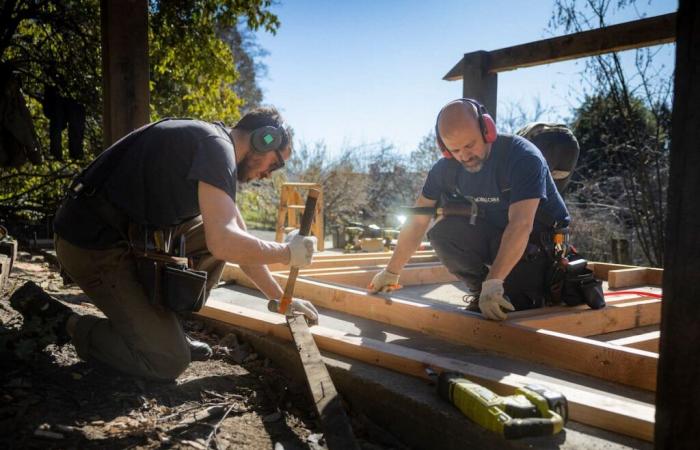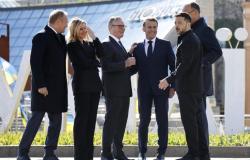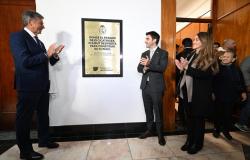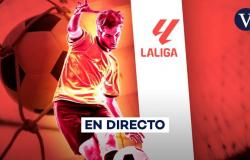
Of the desktop computer to the carpentry workshop. That movement, to which the brothers dared Javier and Joaquín Delfinoalmost ten years ago, in addition to implying a drastic change of work, for them it also became certain: Build houses It would become your way of life.
And beyond having taken the form of an entrepreneurship, at the same time, that purpose, It became even more expansive as a repair tool with which they help improve other people’s lives. For example, those who crossed catastrophes, such as those damaged by the fires that hit the Argentine south this year. The latter They do it within the framework of borders without borders, An organization, non -profit focused on promoting sustainable and human development through design. Among their current projects are the transition houses that they build for citizens who lost everything they had in the forest fire that lashed out with the province of Chubut.
In turn, with this action, to build, They are involved in environmental care -oriented repair projects, such as the work they did to restore an abandoned shed on the site where the Casa Frey store is.
This happened in Bariloche, the place that Delfino chose for the first time in the 90s, when they settled there with their parents and they decided to return after finishing their studies in the city of Buenos Aires.
Soon of that return, In 2016, they founded the Brothers Entrepreneurship Delfino, where they fuse the knowledge that Javier has as an industrial designer, and those of Joaquín, as a top technician in project and construction of works. And not only focused on the office of carpentry, they also make houses with wood, in addition to furniture and other projects such as the facade of a typical bar in the center of Bariloche, the construction of a ceramic workshop, and the development of The ridiculous ideaa renowned city art gallery.
“We make wooden houses”This is how the makers of the houses that at first glance seem simple and without too many pretensions are presented. The thing is, For Delfino, complexity is in creative challenges, both for the techniques with which they work as well as the materials they use, try and explore continuously. There is your constant, in that search.
They, in turn, adhere to the perspective that is part of the “Honest design”. Something like “what is seen, is what it is.” And that in practice It translates into not covering imperfections of wood, on the contrary, leaving them in sight. Imprint that inevitably relate it to the Wabi SabiJapanese aesthetics that cults beauty as something unfinished, characterized by the rustic and austere, among other qualities.
-
The latter reconfirms that They are more interested in the intrinsic essence of things and not so much in appearance. All an epochal position, which also invites us to respect the natural features of wood, or of any other noble material that they use, therefore, of the nature that surrounds them and of which they are also part.
It is that by promoting the trade of construction primarily in wood, they privilege the processes of yesteryear, manuals, and according to what has been learned from generation to generation, for decades or hundreds of years, being more friendly to the environment.
In fact, At the end of last year they carried out a project that was an initiative led by Patagoniathe mountain and fishing sports clothing company that contacted them in the framework of the launch of the second sales premises in the country; Frey Casa, at km 1.5 on Bustillo Avenue, in Bariloche. The Delfino were in charge of repairing the shed that was on the field where the house was recovered that, precisely, belonged to Emilio Freykey figure in the geographical and civic history of that city. They restored a deteriorated space, where “the position” is now working, so it is called the workshop used to play worn or disuse, something that is already a leitmotif of the brand that insists on not throwing, but on repairing the damaged clothing to prolong its useful life. How did they work? They had as a premise, respecting that structure that already had the original construction, in addition to giving priority to the wood that they recovered from the area and the techniques of local framework and carpentry. There, periodically, repair days are held where attendees wear clothes to fix and use again. The last one was in line with the anniversary of the city’s foundation, on Saturday, May 3, and only the opening day of the store more than 120 pieces were repaired.
Also From borders without self -construction designerssince they are the same people affected by fires can make their homes in a simple way and with the tools they have.
Purpose that they are developing for steps, being the first one of the prototype of a post fire shelter, accessible and easy to makeand then share a technical manual in physical and virtual format, that is the guide and that also crosses the technological gap.
Thus, with that transmission of knowledge, it is as if the Delfino returned to the origins of their entrepreneurship that, of course, is still commercial, but that continues without losing sight of the commitment to the natural and human environment.





